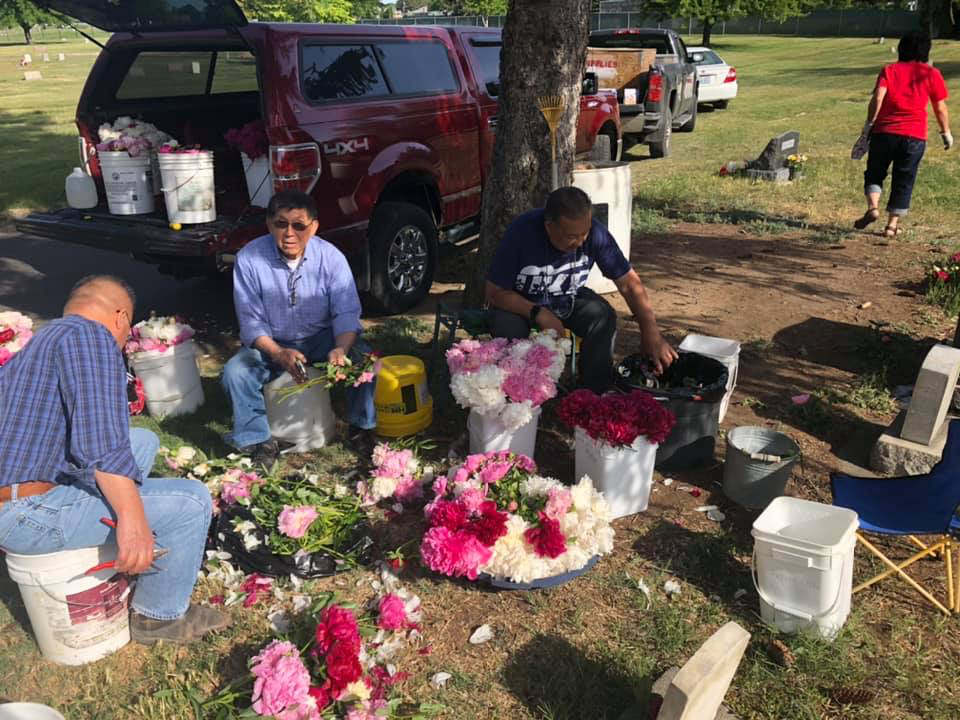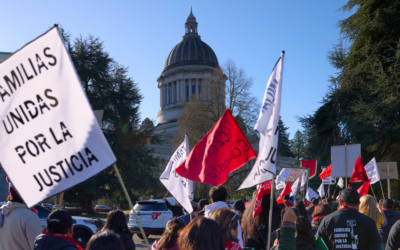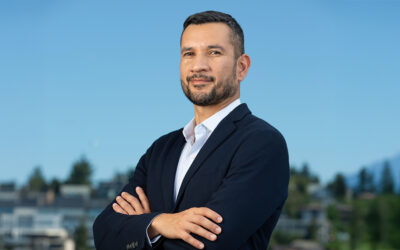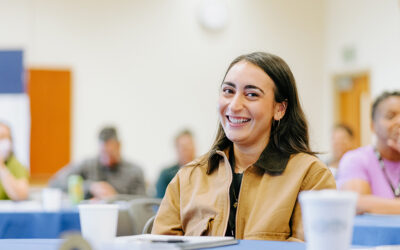Until Feb. 1, 2023, we were Group Health Foundation. This post was written under our former identity. To learn more about our new name, read our announcement here.

The Yakima Japanese Bochi (cemetery association) members Lon Inaba, Dave Sakamoto, and Wally Au arranging flowers in June. The Yakima Buddhist Church is home to many Japanese cultural organizations. Photo: the Yakima Buddhist Church.
In response to increasing anti-Asian violence, Group Health Foundation granted Asian-led and Pacific Islander-led organizations with nearly $1 million in Equitable Response and Recovery Funding. The Yakima Buddhist Church is one of the 35 grant recipients.
Sukiyaki, a simmering dish of thinly sliced beef, yam noodles, bamboo shoots, onions, and other vegetables, has sustained the Yakima Buddhist Church in Wapato for generations. “We’ve been doing this a long time,” said Lon Inaba, the church’s chairman. “The best cook in our community first came up with the sukiyaki sauce and since then we haven’t changed it. It’s a well-regarded secret.”
The hot pot recipe is so delicious that 1,600 people attend the church’s annual sukiyaki fundraiser dinner. They come from as close as the Yakima Valley and as far as Southern California. 2020 would have been the church’s 60th year hosting the dinner, but the event was cancelled because of the pandemic.
The church was built in 1928 as a gathering place for members to learn and practice Jōdo Shinshū Buddhism and has become a cultural center in Wapato over the decades. Sukiyaki is more than just a vehicle for fundraising; it is also a tribute to the longstanding Japanese community in the Yakima Valley.
Lon’s family is very much part of that history. Lon’s grandfather, Shukichi Inaba, had studied agriculture in Japan and arrived in the Yakima Valley in 1907. Along with other Asians, the Japanese were prohibited from owning land. The Asian farmers forged connections with the Yakama Nation, who offered land leases on the Yakama Reservation.
This is how the Japanese community began concentrating in Wapato instead of Yakima, Lon said. At one point, Wapato had more than 1,000 residents of Japanese ancestry. Still, the community continued to be systematically denied their dignity and livelihoods.
“By 1923, they changed the law,” explained Lon. “If you’re Japanese, you could not lease land and it was also illegal for anyone to sublease to you. By that point, my grandfather was farming, big time, hay and potatoes and grain, just like the white farmers.”
A Yakama landowner continued to lease to Lon’s grandparents despite the law, but in smaller parcels. The Inaba family shifted to growing produce, such as tomatoes and melons. With the new crops, Shukichi regained his footing by 1939. Then, in 1942, the United States incarcerated 120,000 people of Japanese descent during World War II. The Inabas were forced to relocate to Heart Mountain, an internment camp in Wyoming.
“Because the Japanese had experience farming and breaking ground in places like the Yakima Valley, they also built the irrigation systems at the relocation center,” Lon said. “They were producing food not only for Heart Mountain, but also for other centers throughout the country. At one point, people outside the camps were complaining that the Japanese were eating better than they were.”
Incarceration upended Japanese neighborhoods and communities throughout the western United States. Lon said only 10 percent of the Wapato Japanese community returned after the war. Many remained in the Treasure Valley, and some went to Seattle or Portland instead. But for those who came back, the church’s gym—also called the Kaikan—is where they stayed as they rebuilt their lives in the Yakima Valley.
Services have been running every week since then (including on Zoom during the pandemic), except during the peak summer farming season. The church is also home to the Yakima Valley Japanese Community association and the Yakima Japanese Bochi (cemetery association).
Lon is exceptionally proud that his community tightly held on to their cultural knowledge and their farming traditions despite the prevailing racism they’ve faced throughout the generations. Their legacy lives on in Lon’s father, his brothers, and Lon himself—who have all become farmers.
It is stories like his family’s that sharpened Lon’s outlook during the pandemic. Over the last year, the church was vandalized, and Lon’s son was verbally attacked and accused of spreading COVID-19 while grocery shopping.
“It is unfortunate that we were and are subjected to discrimination. But the key thing is we have to learn from it and be better because of it,” Lon said and reflected on the Buddhist principle of perseverance. “I really believe in what doesn’t kill you, makes you tougher. I think our community is the perfect example of that. My grandparents went broke three times. They were at the heights of their careers, and then—boom—nothing.”
Another important Buddhist principle is interconnectedness, that our lives are connected and that the action of one impacts many. Lon emphasized it is something people of color in the valley have practiced all along. For the Japanese community, Lon noted, it started with a land lease offered by the Yakama people.
The Yakima Buddhist Church plans to resume the sukiyaki fundraiser dinner in March 2022. Follow them on Facebook to stay in touch.



